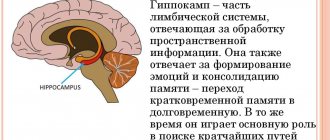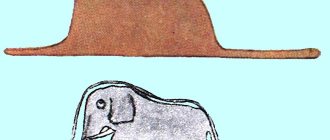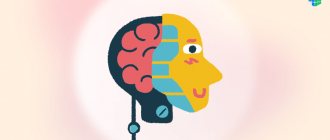Organic personality disorder is a persistent disorder of brain function caused by illness or injury that causes a significant change in the patient's behavior. This condition is marked by mental exhaustion and decreased mental functions. Disorders are detected in childhood and can persist throughout life. The course of the disease depends on age and critical periods are considered dangerous: puberty and menopause. Under favorable conditions, stable compensation of the individual can occur with saving ability to work, and if negative influences occur (organic disorders, infectious diseases, emotional stress), there is a high probability of decompensation with pronounced psychopathic manifestations.
In general, the disease has a chronic course, and in some cases it progresses and leads to social maladjustment. By providing appropriate treatment, the patient's condition may improve. Often patients avoid treatment without recognizing the fact of the disease.
Causes of organic personality disorder
Organic disorders due to a huge number of traumatic factors are very common. The main causes of disorders include:
- injuries (craniocerebral and injuries to the frontal or temporal lobe of the head;
— brain diseases (tumor, multiple sclerosis);
- infectious brain lesions;
- vascular diseases;
— encephalitis in combination with somatic disorders (parkinsonism);
- cerebral palsy;
- chronic manganese poisoning;
- temporal lobe epilepsy;
- use of psychoactive substances (stimulants, alcohol, hallucinogens, steroids).
In patients suffering from epilepsy for more than ten years, an organic personality disorder is formed. It is hypothesized that there is a relationship between the degree of impairment and the frequency of seizures. Despite the fact that organic disorders have been studied since the end of the century before last, the features of the development and formation of symptoms of the disease have not been fully identified. There is no reliable information about the influence of social and biological factors on this process. The pathogenetic link is based on brain lesions of exogenous origin, which lead to disturbances in inhibition and the correct balance of excitation processes in the brain. Currently, the most accurate approach is considered to be an integrative approach in detecting the pathogenesis of mental disorders.
The integrative approach assumes the influence of the following factors: socio-psychological, genetic, organic.
Psychoorganic syndrome
Organic mental disorders are characterized by the mandatory presence of the so-called. psychoorganic syndrome (impaired emotions, memory and intelligence). The mood may be inappropriately increased or decreased, anxiety or a sad-angry mood may be observed. Affect (emotional manifestations) is characterized by lability (variability), explosiveness (explosiveness), flattening (insufficient depth of experience). All memory processes (memorization, storage, reproduction of information) are reduced. False memories are observed (confabulations), memory for some periods of life is completely absent (amnesia). Thinking is characterized, on the one hand, by inhibition of mental processes (torpidity), difficulty switching (rigidity), and on the other hand, by increased exhaustion. The general level of thinking decreases (concepts and ideas become impoverished), a tendency to unnecessary detail appears, and perseverations arise (“getting stuck” and constant repetition of the same thought or expression). The ability to navigate is impaired - first in the environment, and then in one’s own personality. The ability to grasp the full meaning of a situation disappears; only partial details are perceived.
Symptoms of organic personality disorder
The symptoms are characterized by characterological changes, expressed in the appearance of viscosity, bradyphrenia, torpidity, and sharpening of premorbid features. The emotional state is marked by either dysphoria or unproductive euphoria; the later stages are characterized by apathy and emotional lability. The threshold of affect in such patients is low, and an insignificant stimulus can provoke an outbreak of aggressiveness. In general, the patient loses control over impulses and impulses. A person is not able to predict his own behavior in relation to others; he is characterized by paranoia and suspicion. All his statements are stereotypical and are marked by characteristic flat and monotonous jokes.
At later stages, organic personality disorder is characterized by dysmnesia, which can progress and transform into dementia.
Treatment
Three directions of treatment:
- Therapy of the underlying disease - organic damage to the nervous system.
- Restoration of not yet dead, preserved nerve cells.
- Psychotherapeutic work aimed at developing a critical attitude towards one’s condition, learning to control emotions and cognitive training.
- Psychological work with the patient’s loved ones.
Medication, physiotherapeutic, psychotherapeutic methods, biofeedback therapy, diet therapy, reflexology, exercise therapy and other methods are used.
Organic personality and behavior disorders
All organic behavioral disorders occur after a head injury, infection (encephalitis) or as a result of a brain disease (multiple sclerosis). There are significant changes in human behavior. Often the emotional sphere is affected, and the person’s ability to control impulsiveness in behavior decreases. The attention of forensic psychiatrists to the organic disorder of human behavior is caused by the lack of control mechanisms, increased self-centeredness, as well as the loss of socially normal sensitivity.
Unexpectedly for everyone, previously benevolent individuals begin to commit crimes that do not fit into their character. Over time, these people develop an organic cerebral condition. This picture is often observed in patients with trauma to the anterior lobe of the brain.
Organic personality disorder is taken into account by the court as a mental illness. This illness is accepted as a mitigating circumstance and is the basis for referral for treatment. Often problems arise in antisocial individuals with brain injuries that exacerbate their behavior. Such a patient, due to an antisocial, stable attitude towards situations and people, indifference to consequences and increased impulsiveness, can appear very difficult for psychiatric hospitals. The matter can also be complicated by depression and anger of the subject, which are associated with the fact of the disease.
In the 70s of the 20th century, researchers proposed the term “episodic loss of control syndrome.” It has been suggested that there are individuals who do not suffer from brain damage, epilepsy, or psychosis, but who are aggressive due to a deep organic personality disorder. At the same time, aggressiveness is the only symptom of this disorder. The majority of people with this diagnosis are men. They have long-term aggressive manifestations that go back to childhood, with an unfavorable family background. The only evidence in favor of such a syndrome is EEG abnormalities, especially in the temple area.
It has also been suggested that there is an abnormality in the functional nervous system leading to increased aggressiveness. Doctors have suggested that severe forms of this condition are due to brain damage, and they can persist into adulthood and also manifest themselves in disorders associated with irritability, impulsivity, lability, violence and explosiveness. According to statistics, a third of this category had an antisocial disorder in childhood, and in adulthood most of them became criminals.
Kinds
Psychiatry classifies as affective disorders all mental disorders that are based on frequent changes in mood in the direction of its increase or decrease.
Let's look at the ones that occur most often:
- Depression is characterized by a constant feeling of hopelessness and despondency for at least 2-3 weeks. Hobbies and past interests do not bring joy. A serious illness that requires referral to a specialist.
- Dysthymia is a chronic type of depression that results in daily depressed mood. The symptoms are not as severe as those of a clinical depressive episode. This diagnosis is made if despondency and apathy do not leave a person for 2 years or more.
- Bipolar disorder is an affective mood disorder that was previously known as manic depression. It is characterized by 2 main phases: depressive and manic. They can alternately replace each other or mix into one state. In this case, the person exhibits signs of depression with motor activity or delusional thoughts.
- Cyclothymia is a series of constant changes in mood and physical activity, without depression or manic agitation. At the same time, a person is quite capable of maintaining social activity, even experiencing difficulties with well-being. Without treatment, it can progress to bipolar disorder.
- Manic syndrome - this type of disorder is characterized by an excited state, euphoria, and motor activity. Rapid speech, insomnia, and confusion of thoughts are often observed. It occurs in the form of attacks, the duration of which depends on the stage of the disease.
Anxiety disorders are also identified. Its main feature is a constant feeling of restlessness and anxiety for no apparent reason. This group includes various phobias and panic attacks.
Diagnosis of organic personality disorder
Diagnosis of the disease is based on identifying characterological, typical emotional, as well as cognitive changes in personality.
To diagnose organic personality disorder, the following methods are used: MRI, EEG, psychological methods (Rorschach test, MMPI, thematic apperception test).
Organic disorders of brain structures (trauma, disease or brain dysfunction), the absence of memory and consciousness disorders, and manifestations of typical changes in the nature of behavior and speech are determined.
However, for the reliability of the diagnosis, long-term observation of the patient, at least six months, is important. During this period, the patient must show at least two signs of an organic personality disorder.
The diagnosis of organic personality disorder is established in accordance with the requirements of ICD-10 if two of the following criteria are present:
- a significant decrease in the ability to carry out purposeful activities that require a long time and do not lead to success so quickly;
- altered emotional behavior, which is characterized by emotional lability, unjustified fun (euphoria, easily turning into dysphoria with short-term attacks of aggression and anger, in some cases a manifestation of apathy);
- drives and needs that arise without taking into account social conventions and consequences (antisocial orientation - theft, intimate claims, gluttony, failure to comply with personal hygiene rules);
- paranoid ideas, as well as suspicion, excessive preoccupation with an abstract topic, often religion;
- change in tempo in speech, hypergraphia, over-inclusion (inclusion of side associations);
- changes in sexual behavior, including decreased sexual activity.
Organic personality disorder must be differentiated from dementia, in which personality disorders are often combined with memory impairment, with the exception of dementia in Pick's disease. The disease is more accurately diagnosed on the basis of neurological data, neuropsychological examination, CT and EEG.
Duration of therapy
Psychotherapeutic treatment for personality disorder usually lasts a very long time, for several years.
But, despite such a difficult, long path to improving the patient’s condition, improvements are still observed, and a lot, but there is almost no control over the data. Therefore, problems still remain unresolved in terms of the effectiveness of diagnosis and basic psychotherapeutic approaches to treatment and identification of the sources of the disease.
Current recommendations for the treatment of personality disorder include comprehensive neurometabolic therapy. For example, patients with borderline disorders with frequently changing moods and lack of control often find relief from taking tricyclic antidepressants and MAO inhibitors. For patients with disorders of the cognitive process and adaptation, components of aggression and obsessions, antipsychotics are recommended in small dosages.
How many people have a personality disorder?
Personality disorders are common mental health problems around the world.
It is estimated that approximately one in 20 people have a personality disorder. However, many people have only minor changes, which often only become apparent during times of stress (such as bereavement). Other people, with more serious problems, will need specialist help for a long time.







